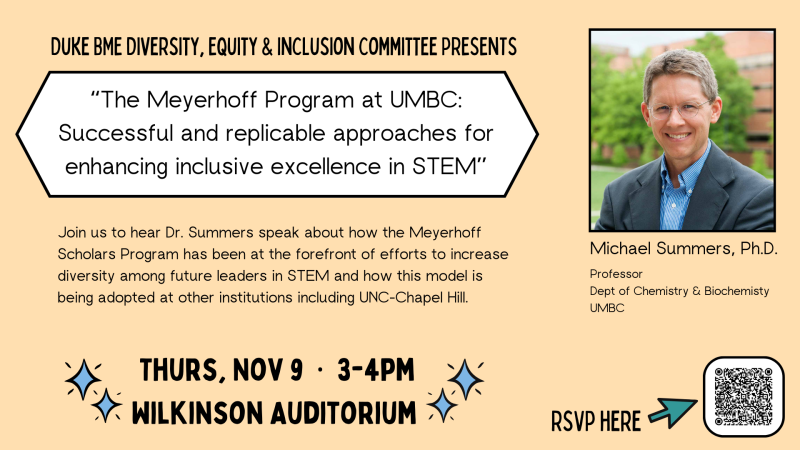This event has passed.
Thursday, November 9, 2023 – 3:00PM to 4:00PM

Presenter
Michael Summers, PhD
Academics across all science, technology, engineering, and related fields with an interest in increasing diversity and access in STEM are invited to hear from Dr. Michael Summers.
The Meyerhoff Scholars Program at UMBC is a nationally recognized model for increasing retention and academic performance of URM undergraduates in STEM and for preparing those undergraduates to pursue and succeed in graduate and professional programs. Meyerhoff includes students of all ethnicities and backgrounds who are interested in issues of diversity and inclusion in STEM. Since 1993, the program has graduated more than 1500 students, of which more than 426 alumni have earned PhDs, 74 have earned MD-PhDs, 160 have earned MDs, and 330 have earned Master's degrees (some on the way to a PhD). More than 200 additional alumni are currently enrolled in STEM graduate and professional programs. 71 alumni currently hold faculty appointments. Qualified high school students who declined Meyerhoff offers and attended other universities were half as likely to graduate with a STEM degree and approximately 5 times less likely to pursue or complete STEM graduate degrees. Despite being medium sized university with a modest population of African American students (~12,000 undergraduates, 14% African American) UMBC is the top undergraduate school of origin of African American STEM PhD and M.D.-Ph.D. recipients in the U.S. To determine if Meyerhoff like outcomes could be achieved at other Majority research institutions with different URM compositions, geographies, institutional sizes, and cultures, but with like-minded leadership, we established partnerships with the University of North Carolina, Chapel Hill and Pennsylvania State University. Five-year outcomes indicate that the program can be adopted at other institutions, with outcomes immediately matching or exceeding the Meyerhoff Program. Approaches that leverage lessons learned from successful programs like Meyerhoff with inter-institutional partnering could serve as a general paradigm for expanding inclusive excellence in STEM.
